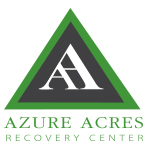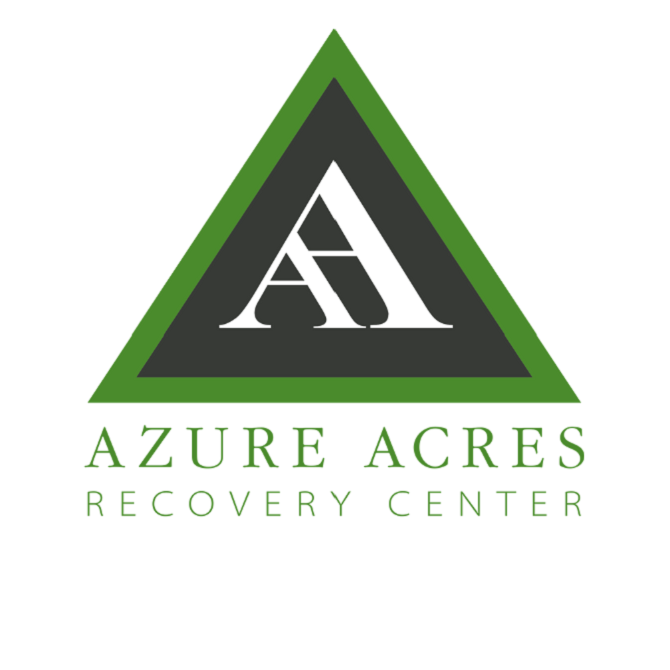
Contributor: Staff at Azure Acres Recovery Center
Many people believe that marijuana is a relatively safe drug, especially as it became legal in various states throughout the country. While the safety of using marijuana may be an ongoing debate, there is no question regarding the dangers associated with using synthetic marijuana.
What Is Synthetic Marijuana?
Synthetic marijuana, also known as Spice and K2, is a compound drug consisting of a mixture of herbs and laboratory-made chemicals that are designed to cause the same effects as the THC in marijuana [1]. The chemicals are typically sprayed onto the herbs, which can be smoked or made into liquid form so that people can inhale or vaporize it.
The chemicals used in making synthetic marijuana are known as cannabinoids and have similar properties to those in the marijuana plant [2]. Because of its association with marijuana, some people may believe that synthetic marijuana is a natural substance and safe to use.
Call Azure Acres Recovery Center for Help 855-946-0696
But that is a dangerous misconception. Synthetic cannabinoids are classified as psychoactive substances, meaning that they can have mind-altering effects similar to those of illegal substances like LSD and PCP.
Statistics
The National Institute on Drug Abuse reported that in 2014, there were 177 variations of synthetic cannabinoids identified [3]. Taking the number of variations into account makes it easy to understand that a person can never be fully sure of the type and amount of chemicals they’re ingesting, which heightens the risks associated with using the drug.
In April 2018, the Centers for Disease Control and Prevention (CDC) issued an alert regarding what they referred to as an outbreak of synthetic cannabinoid use leading to potential life-threatening effects related to excessive bleeding or clotting [4].
The American Association of Poison Control Centers reported having received 53 calls for cases related to synthetic marijuana exposure in January and February 2022 alone [5].
Symptoms and Effects of Synthetic Marijuana Use
With some substances, the symptoms or effects of their use may only appear after a person has been using them for an extensive period. With synthetic marijuana, however, the dangerous symptoms and effects can happen after a single-use.
 There can be any number of symptoms related to the use of synthetic marijuana, ranging from mild to life-threatening, which can include the following:
There can be any number of symptoms related to the use of synthetic marijuana, ranging from mild to life-threatening, which can include the following:
- Vomiting
- Agitation
- Violent behavior
- Severe anxiety
- Paranoia
- Hallucinations
- Seizures
- Back and side pain
- Thoughts of suicide
- Rapid heart rate
- Tremors
- Rapid or shallow breathing
- Unexplained bleeding in urine, gums, or other areas
Some people may also develop a physical and psychological dependence on synthetic marijuana, meaning that they need to ingest more of the substance to get high. People who are addicted to the drug may go through a period of withdrawal if they try to stop using, which can ultimately cause them to continue using to avoid those distressing symptoms.
The effects of using synthetic marijuana can vary but may include:
- Blood clots
- Heart attack
- Kidney failure
- Renal insufficiency
- Rhabdomyolysis (the breaking down of muscle tissue, which releases a protein into the blood that can cause significant damage, including permanent disability)
- Overdose/poisoning
As is true when using any illicit substance, the most devastating potential consequence of ingesting synthetic marijuana is death. It is extremely important that a person seeks medical care promptly if they are experiencing adverse symptoms or effects.
Treating Synthetic Marijuana Addiction
If a person is battling an addiction to synthetic marijuana, there are many treatment options available. Depending on a person’s medical state, their history of drug use, and the presence of any symptoms of co-occurring concerns (e.g., clinical depression, anxiety, PTSD, etc.), there are various levels of care that may be beneficial for them.
Inpatient treatment is designed for people who are suffering from acute concerns and need immediate help. It is short-term in nature and gives patients the care they need so that they can stabilize. If a person needs detox services, they can often be accessed within inpatient treatment centers.
 Residential treatment centers offer individuals an opportunity to step away from the temptations and stress they may be facing in their everyday lives and place their focus solely on recovery. Residential treatment centers vary in the types of therapeutic interventions they offer, but most provide group therapy, individual therapy, family therapy, and experiential therapies.
Residential treatment centers offer individuals an opportunity to step away from the temptations and stress they may be facing in their everyday lives and place their focus solely on recovery. Residential treatment centers vary in the types of therapeutic interventions they offer, but most provide group therapy, individual therapy, family therapy, and experiential therapies.
Another option for treatment is a partial hospitalization program (PHP). These programs are typically daylong and take place five days a week. PHPs are ideal for people who need a highly structured day of treatment but don’t need the 24/7 supervision offered in residential or inpatient settings.
Intensive outpatient programs (IOPs) are another treatment option for people who are struggling with addictions to synthetic marijuana. These programs meet an average of two to three days a week for two to three hours a day, depending on the location. This allows for more flexibility with a person’s schedule while also giving them the opportunity to get the support they need to help prevent future relapse.
People also have the option of receiving traditional outpatient services, which consists of meeting one-on-one with a therapist or in a group setting. This can be helpful for those who have already received treatment in a higher level of care but can benefit from ongoing treatment as they work toward maintaining their sobriety.
References:
[1] Camero, K. (2021, September 17). Fake pot called ‘spice’ is harder to quit than real weed, study says. What to know. Miami Herald. https://www.miamiherald.com/news/nation-world/national/article254314438.html
[2] National Institute on Drug Abuse; National Institutes of Health; U.S. Department of Health and Human Services. (2020, June). Synthetic cannabinoids (K2/Spice) DrugFacts. https://nida.nih.gov/publications/drugfacts/synthetic-cannabinoids-k2spice
[3] National Institute on Drug Abuse; National Institutes of Health; U.S. Department of Health and Human Services. (2017, October). Synthetic cannabinoids (K2/spice) unpredictable danger. https://archives.drugabuse.gov/trends-statistics/synthetic-cannabinoids-k2spice-unpredictable-danger
[4] Centers for Disease Control and Prevention. (2018, April 23). COCA clinical action: outbreak alert update: potential life-threatening vitamin K-dependent antagonist coagulopathy associated with synthetic cannabinoids use. https://emergency.cdc.gov/newsletters/coca/042318.html
[5] National Poison Data System, American Association of Poison Control Centers. (n.d.). Synthetic cannabinoids. https://aapcc.org/track/synthetic-cannabinoids
You can reach your local poison control center by calling the Poison Help hotline at 1-800-222-1222. To save the number on your mobile phone, text POISON to 797979.
About Our Sponsor:
 Azure Acres Recovery Center has been providing addiction treatment services for more than 60 years. Programming at Azure Acres has evolved through the decades to reflect evidence-based improvements in the science of addiction treatment. By providing person-focused care that is based on the time-tested principles and practices of the 12-Step recovery model, Azure Acres has helped more than 20,000 people take the first steps toward a drug-free future. For more information, please visit www.azureacres.com.
Azure Acres Recovery Center has been providing addiction treatment services for more than 60 years. Programming at Azure Acres has evolved through the decades to reflect evidence-based improvements in the science of addiction treatment. By providing person-focused care that is based on the time-tested principles and practices of the 12-Step recovery model, Azure Acres has helped more than 20,000 people take the first steps toward a drug-free future. For more information, please visit www.azureacres.com.
The opinions and views of our guest contributors are shared to provide a broad perspective of addictions. These are not necessarily the views of Addiction Hope, but an effort to offer a discussion of various issues by different concerned individuals.
We at Addiction Hope understand that addictions result from multiple physical, emotional, environmental, and genetic factors. If you or a loved one are suffering from an addiction, please know that there is hope for you, and seek immediate professional help.
Published on March 22, 2022
Reviewed by Jacquelyn Ekern, MS, LPC on March 22, 2022
Published on AddictionHope.com

